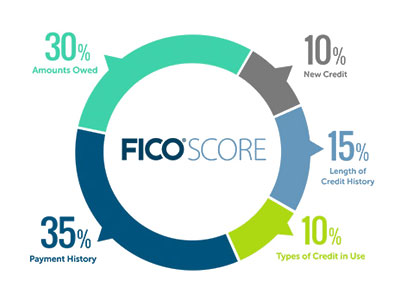Yes, COVID-19 is Terrible. Rent is Due. The COVID Response.

Every day we hear about businesses, restaurants, and properties completely turned upside down from the global pandemic. Every day ourselves, we decide where to draw limits, our comfortability with time in public, and with so much unknown, making plans on what to do next. We need some structure somehow, and there are limits to the plans we can make. As I figured out my own finances, spoke to friends and family going in and out of unemployment, I couldn't help but wonder, how do we create a plan to ensure we make it out to the other side of the mask? Today I'll be reviewing a strategy for property managers and landlords, to spend time on pieces of the business that leverage the long-term success of their properties. After all, we want to be around as long as possible, and we have renters that need a (safe) place to shelter right now
70% Increase in On-Time Payments
Let's break down how COVID-19 has affected our tenants. This virus has been reported by the CDC to spread very quickly and easily, with symptoms showing up 14 days after exposure. Employers and businesses have moved to remote work or shut down. So, tenants are staying home more, with work or looking for work. They're thinking about where to go now that they must pivot in or out of a new industry, how they present themselves during virtual interviews on a computer (with lighting outside of Golden Hour). They're thinking about what to eat, if they should go out, and who they should interact with. The interior of their homes has started to look dated and drab, so they may be shopping for new home furniture, or taking to DIY projects for an outlet of creativity. Also, many property managers have had to increase staffing for new cleaning procedures, including cleaning supplies for their tenants in communal spaces like laundry facilities. Above all, individuals around the globe have been shook from this pandemic and are looking at what they value most. Do they regret not calling their parents as much last year? Do they want to spend more time following a passion outside of their work? Are they prioritizing their housing as the one thing they know that they need right now? Ah, yes, my point on prioritizing their rent payments because in the end, they need a place to hang their hat after a day in the 2020 pandemic.
Renters have stayed renters longer in the past 10 years than any time in history. Renting has increased sharply across most age groups, specifically from 25-39 years old. Vacancy rates are at decade-long lows, pushing up rents far faster than incomes. Plus, rent households with income of $75,000 or more in 2019 hit 22 percent, the highest level on record. Could renters be the future of housing in 2021? I'd say they're one to bet on. With student debt growing every year, and graduates awaiting the looming email, "Heads Up: Your Student Loan Just Entered Its Next Phase" AKA "We are increasing the amount due each month now that you're graduated, congrats" it seems that Gen Z and their parents will be renting for much longer than previous generations. So, when you have a responsible applicant that needs to pay their student debt, and wants an address of their own, what makes you stand out as a property?
Gen Z and their parents will be renting for much longer than previous generations
Rent reporting is the best amenity for renters post COVID-19, and it's a win-win for those that manage properties. A renter that prioritizes their rent, should receive more than a gold star for paying on time, especially if they're going to be renting for another 5 years. As a property manager, when you read a credit report and see on-time payments for more than 12 months, you view this applicant as a responsible renter. If they have 5 retail cards with a balance, but you see their on-time rent payments reported, you now know their apartment is a larger investment than the newest clothing on their credit card. It's a clear and accurate way to see someone's rent history, the amount, and the timeline, without having to verify their previous addresses from other landlords. This is only the beginning of why rent reporting is so valuable to both parties.
Next, a tradeline on a renter's account with on-time payment history, accounts for 35% of their FICO score. You've probably heard of a FICO score, it's integrated on many credit card mobile apps, online websites that help consumers understand their credit report, and are becoming part of an application for renters. So, when a student with debt is looking for housing online, and sees Rent Reporting as an amenity of a property they love, the sparkling swimming pool just became a B-list feature of the community. In fact, over two-thirds of renters would select a property just on Rent Reporting, compared to another property with the same features. Why? Because their credit score jumps on average a minimum of 26 points in a year of reported rent. Their higher credit score helps with applying to new credit cards, not just student secure cards but ones with travel points and cashback. When applying for an auto loan, their higher score provides better interest rates. Their finances just had a makeover, and all they did was pay their rent they agreed to pay in a lease. Convinced yet? Wait until you see why Rent Reporting can change the health of your property through COVID-19.
On-time payment history, accounts for 35% of a consumer's FICO score
With evictions on hold in states, your rent payments can become very behind. Renters have the responsibility to pay their rent each month, on time, but with 17 million Americans unemployed, they could be scrambling. Reported rent on a credit file, is the equivalent of skipped payments, and is proactively reporting before an eviction. Don't get me wrong, collection agencies have a hard job, but can take a lengthy amount of time to recoup lost income. Get the ball rolling on holding everyone accountable by implementing rent reporting. It doesn't have to be a new cost to you, either.
Rent reporting by boostRscore is the newest service from Real ID, with 15 years of experience in background screening. A trusted source of sensitive data, quick decision making, and efficient processes for folks like you who manage properties. The cost of rent reporting is very competitive and can be something fully supported by tenants. With the market of consumer-facing rent reporting costing around $7-$10/month, it's clear that renters will pay for this service. When adding boostRscore to your monthly charge, you're able to fix the price at wherever you'd like, closer to $7-$10 and create revenue from your tenants. So, a building with 100 units bringing in another $450 each month is just the beginning. Schedule a demo with boostRscore to learn more about how rent reporting can be the best transition you've made this year, besides wearing a facemask around people.




